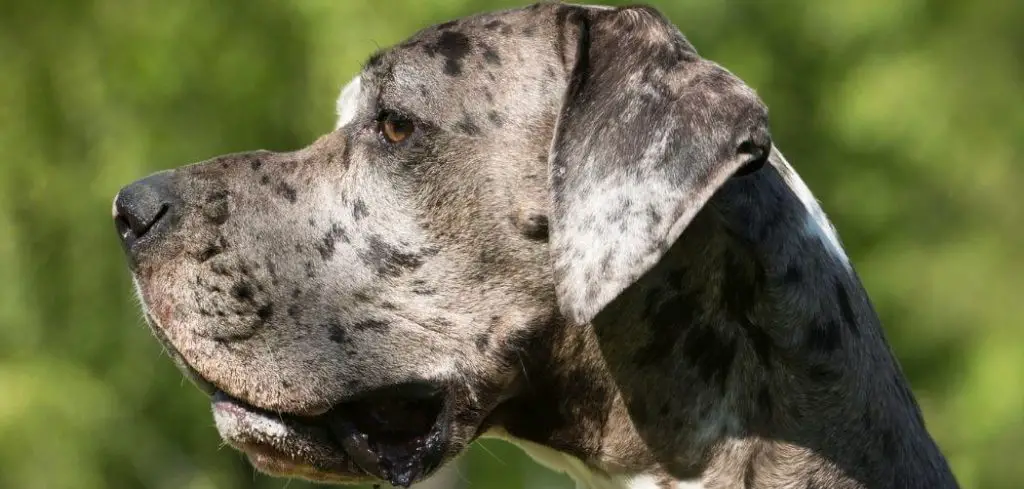It can be alarming to see a dog eating grass excessively and then vomiting afterward. While occasional grass chewing is considered fairly normal in dogs, doing it obsessively combined with vomiting can signal an underlying issue that needs attention.
We outline the common reasons why a dog may excessively eat grass and vomit, what you can do, and when to seek veterinary help.
Dog Eating Grass Excessively and Vomiting — Why It Happens
When a dog eats grass excessively and vomits afterward, it’s usually more than a harmless quirk. Sometimes it can be a dog’s attempt to soothe an upset stomach, but it may also be related to gastrointestinal irritation, dietary deficiencies, parasites, or even more serious illnesses. Stress, boredom, and behavioral issues can also play a role, but vomiting in connection with grass eating is often tied to digestive upset or medical conditions.

Dog Eating Grass Excessively and Vomiting: Common Causes
Gastrointestinal Upset
Many dogs eat grass to relieve nausea or discomfort in the stomach. The rough texture can stimulate vomiting, which may help them feel better.
However, when vomiting happens frequently after grass eating, it could point to chronic gastrointestinal irritation, infections, or inflammatory bowel issues.
Owners may also notice other symptoms such as drooling, decreased appetite, or lethargy.
Read more: Dog Eating Grass Frantically Middle of Night (Is it stress or something else?)
Intestinal Parasites
Worm infestations, such as roundworms or hookworms, can cause stomach irritation and nausea.
Dogs with parasites may instinctively eat grass to trigger vomiting and expel discomfort.
Signs of parasites can include weight loss, diarrhea, scooting, and a dull coat. Vomiting after eating grass can be a sign the parasites are disrupting normal digestion and making the stomach sensitive.
Dietary Deficiencies
Sometimes dogs chew grass because their diet lacks certain nutrients, especially fiber. In these cases, the dog may eat grass excessively, but the indigestible plant matter can irritate the stomach lining and trigger vomiting.
Dogs on low-quality kibble or unbalanced diets are at higher risk. Chronic vomiting in this situation can lead to dehydration or malnutrition.
Gastric Irritation and Acid Reflux
Dogs with acid reflux, gastritis, or ulcers may turn to grass in an attempt to ease the discomfort.
Grass can prompt vomiting, which may temporarily relieve the burning or bloated feeling.
If vomiting continues regularly, however, it points to a more serious and ongoing digestive issue. Other signs can include licking the lips frequently, burping, or refusing food.
Poisonous Plants or Toxins
Not all greenery is safe for dogs. If a dog eats grass treated with pesticides or fertilizers, or chews on toxic plants in the yard, vomiting is the body’s way of expelling the harmful substance.
This cause is particularly concerning because toxin ingestion can quickly become life-threatening. Dogs may also display tremors, weakness, or diarrhea alongside vomiting.
Behavioral Causes (Stress or Boredom)
In some cases, dogs eat grass excessively as a behavioral response rather than a medical one.
Stress, anxiety, and boredom can lead to compulsive grass chewing. However, when combined with vomiting, even stress-related grass eating can worsen digestive issues.
Vomiting may then become a cycle of stress and stomach upset reinforcing each other.
What to Do If Your Dog Is Eating Grass Excessively and Vomiting
If a dog vomits occasionally after eating grass but otherwise seems healthy, it may not be an immediate emergency. However, repeated vomiting or excessive grass eating should always be taken seriously.
Make sure the dog has access to fresh water, as vomiting can quickly lead to dehydration.
Switching to a high-quality, balanced diet with adequate fiber may reduce the urge to eat grass. Providing enrichment, exercise, and stress relief can also help if the cause is behavioral.
If parasites are suspected, a veterinary stool test and deworming treatment are necessary. Avoid letting the dog chew on grass treated with chemicals or unknown plants.
Monitoring your pet’s behavior closely will help determine if the habit is occasional or a sign of something more serious.
When to Call or Visit Your Vet
If a dog vomits multiple times in a day, cannot keep water down, or seems lethargic, veterinary care is essential. Persistent vomiting after eating grass could indicate underlying gastrointestinal disease, parasites, or toxin ingestion.
Seek veterinary help if vomiting is accompanied by diarrhea, blood in the vomit, drooling, collapse, or abdominal pain. Puppies, senior dogs, and dogs with preexisting conditions are at higher risk of complications and should be evaluated promptly.
Even if symptoms seem mild, chronic vomiting after eating grass should not be ignored. A vet can perform diagnostic tests such as bloodwork, stool exams, or imaging to rule out serious causes and provide the right treatment plan.
Read more: Dog Eating Grass Excessively (Here’s Why)
Key Takeaway
Seeing a dog eat grass excessively and vomit afterward is a sign that something may be wrong rather than a harmless habit. While some dogs occasionally use grass to self-soothe, frequent vomiting points to medical issues such as gastrointestinal upset, parasites, or dietary imbalances.
The safest approach is to monitor the behavior, provide supportive care at home, and contact a veterinarian if the vomiting continues or is accompanied by other concerning symptoms.
With the right care and attention, most dogs can recover well and return to a healthier, more comfortable routine.
